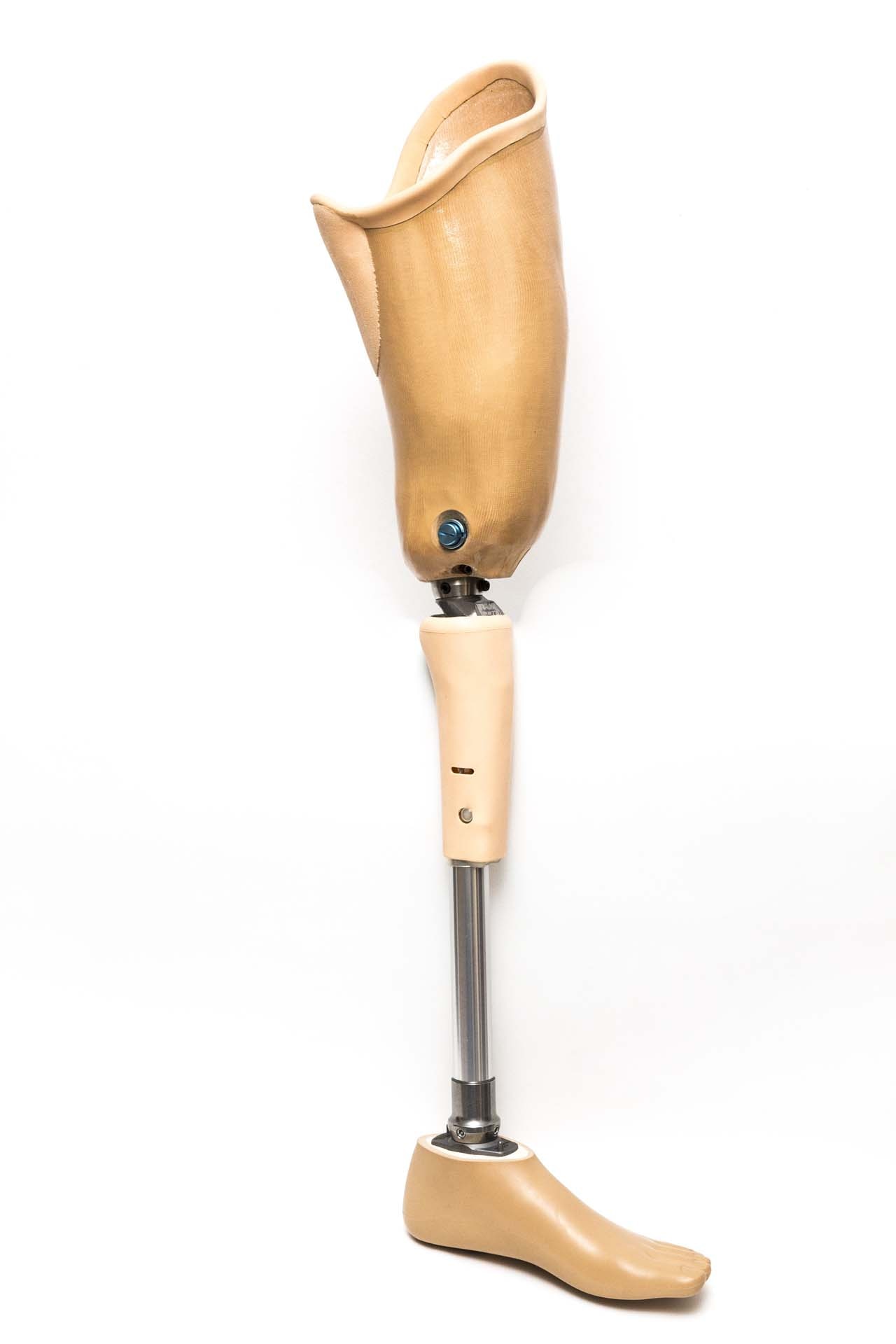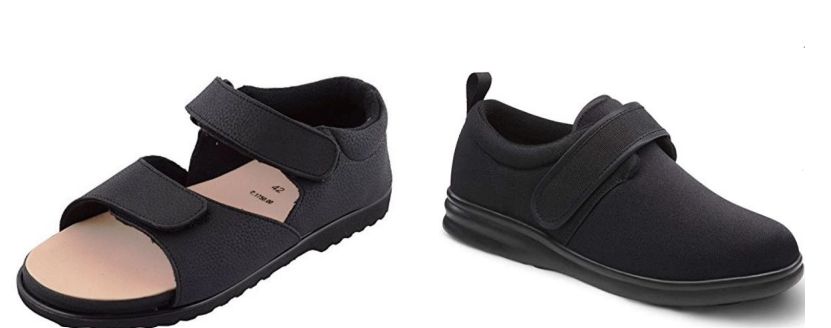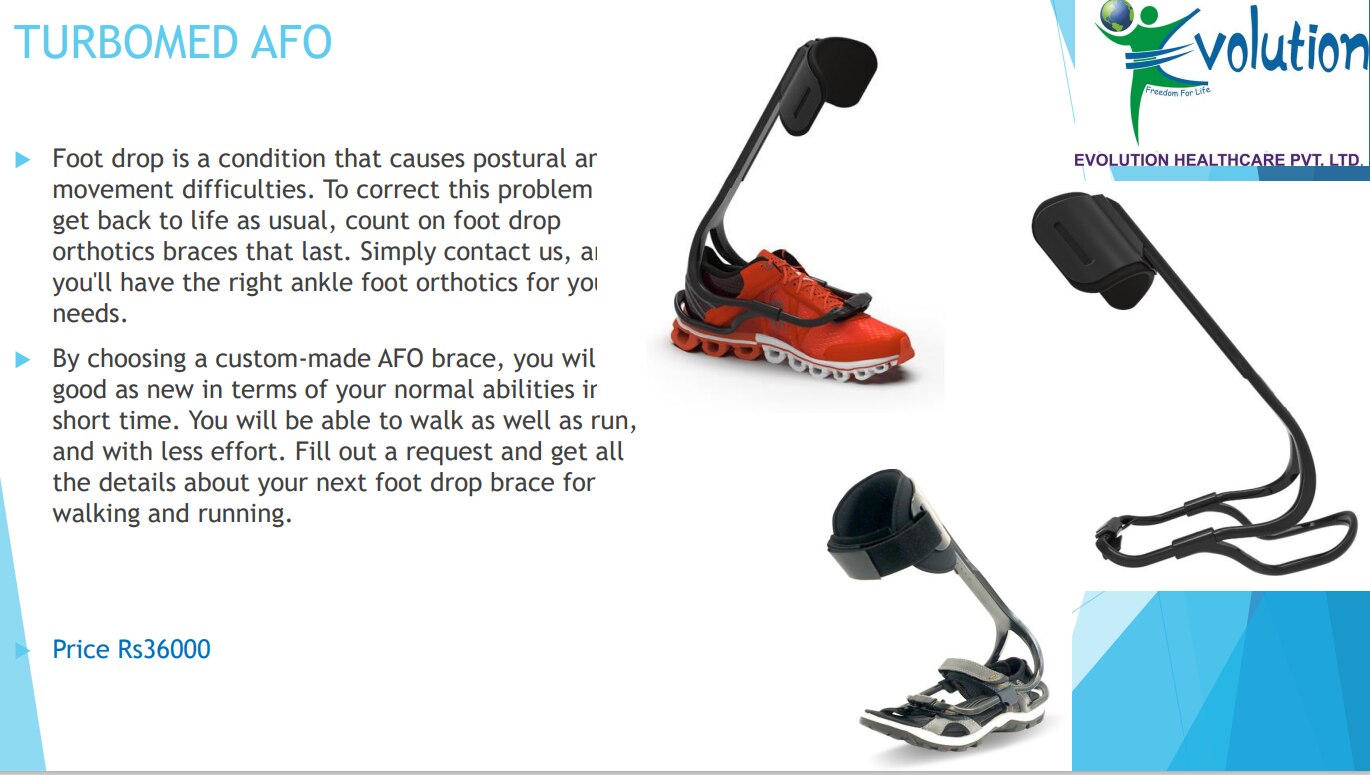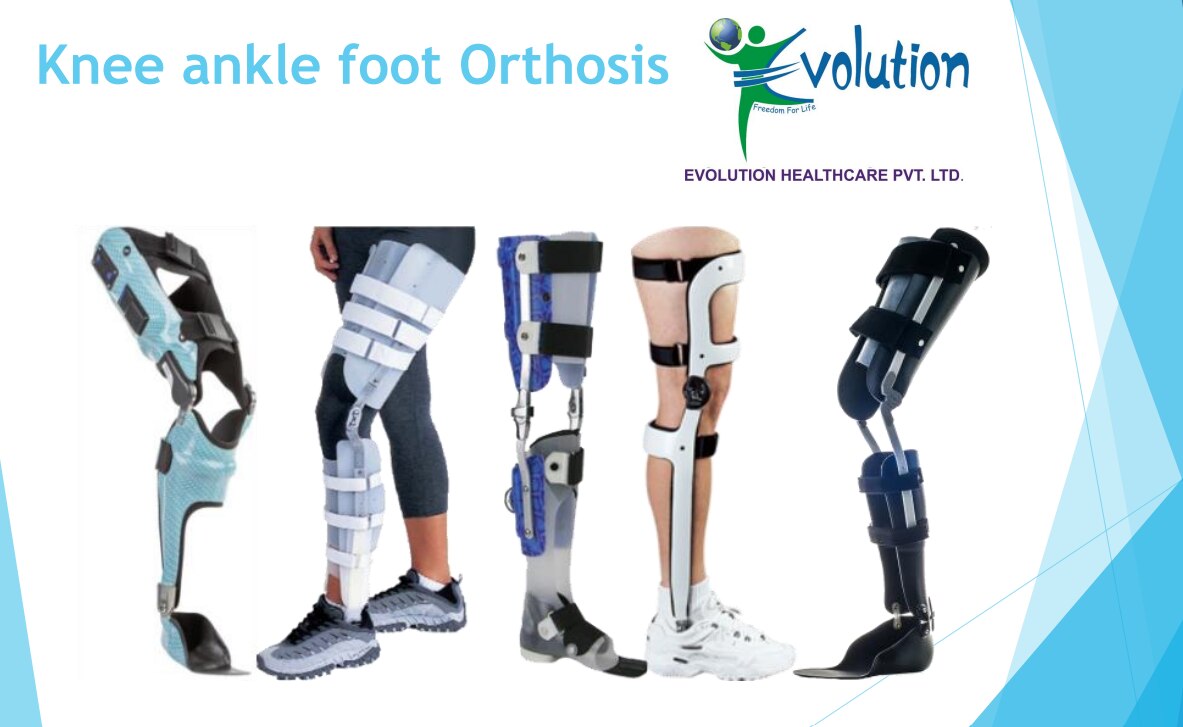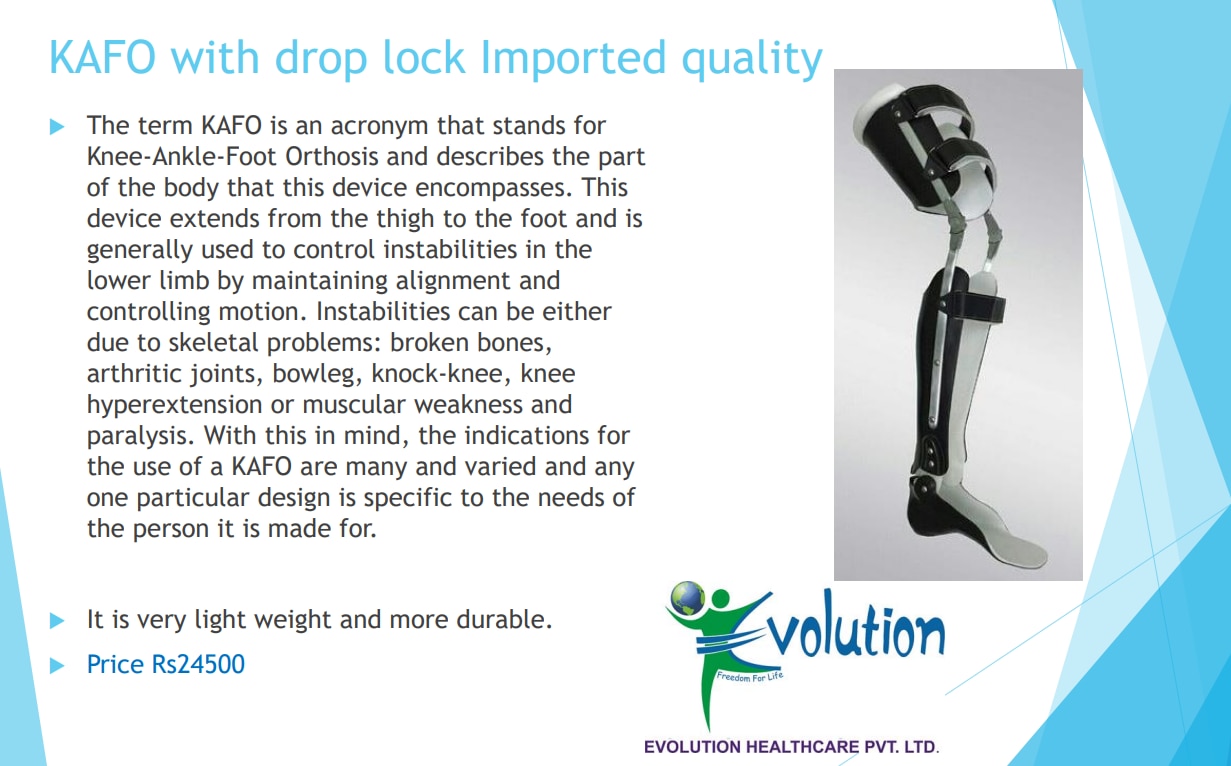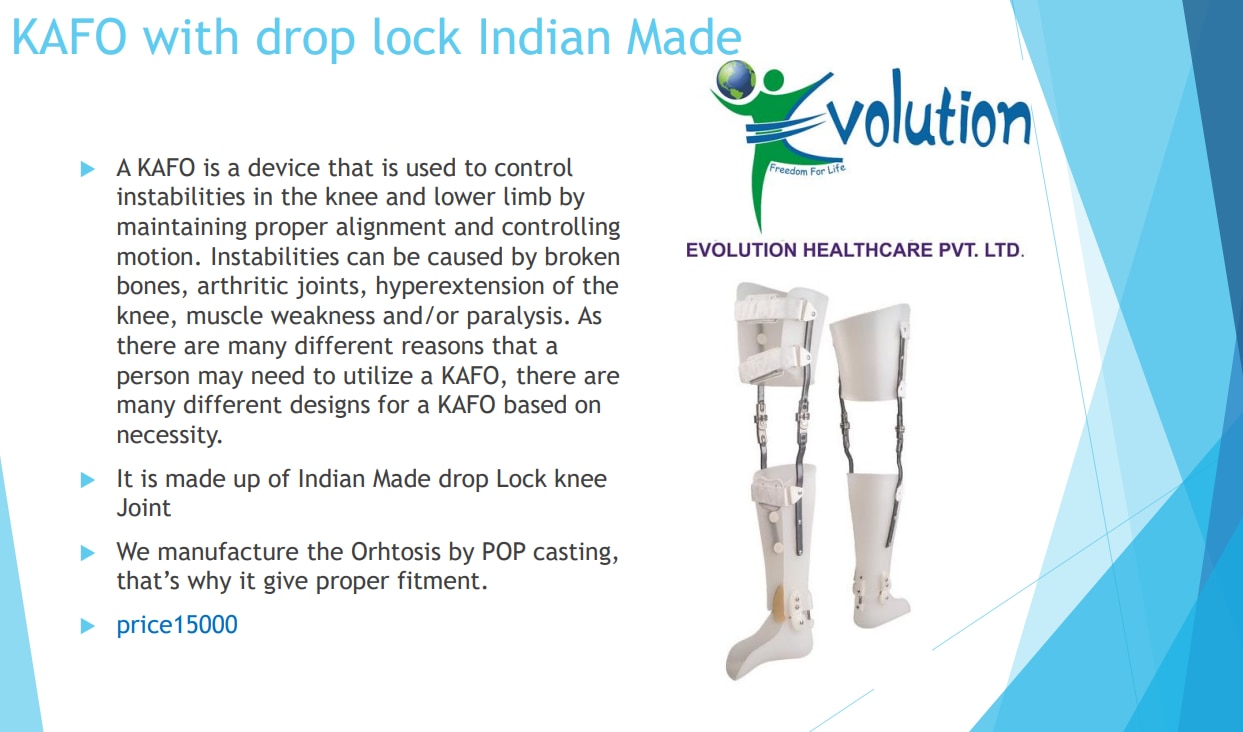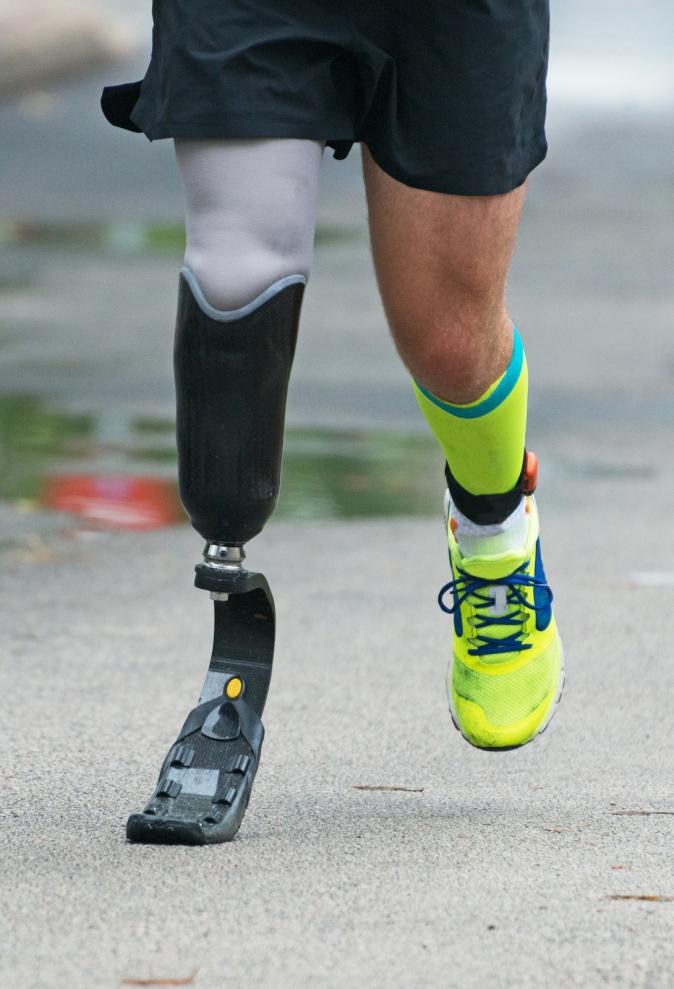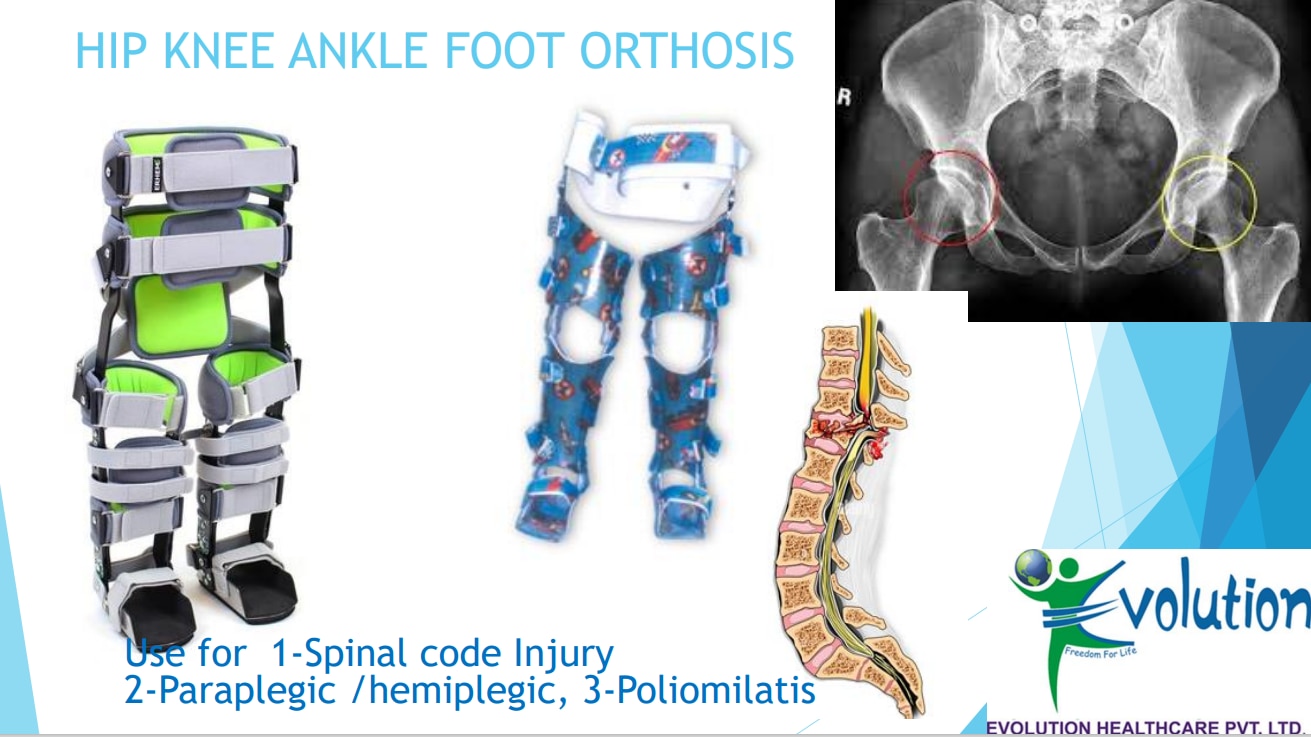ABOVE KNEE PROSTHESIS (ARTIFICAIL LIMB ABOVE THE KNEE) An above-knee prosthesis, also known as a transfemoral prosthesis, is an artificial limb designed to replace a missing leg above the knee joint. This sophisticated piece of technology plays a pivotal role in restoring mobility and functionality for individuals who have undergone knee amputations. Components and Structure: Socket: The custom-made socket is a crucial component that interfaces with the residual limb. It provides a secure and comfortable fit, allowing for weight distribution and control. Evolution Healthcare Pvt. Ltd. produces unique designs that give more comfort to the patient. There are so many socket designs, like MAS sockets, Ischial containment sockets, narrow AP ML sockets, and quad-socket designs. We follow the most advanced socket design called MAS socket design. Liner: The liner is a soft, cushioning material that goes between the residual limb and the socket. It enhances comfort, reduces friction, and aids in shock absorption. There two type liner according to material one is silicon prosthetic liner and thermos polyurethane prosthetic liner. According to suspension system of the prosthesis there 3 type liner cushion liner, Locking liner and suction liner. EVOLUTION HEALTHCARE PRIVATE LIMITED provide more advance prosthetic liner which are more durable and give more comfort to the patient. Pylon: A lightweight, durable rod or tube connects the socket to the foot. It provides structural support and flexibility. Knee Joint: The knee joint is a pivotal element in above-knee prosthetics. Different types of knee joints are available, including mechanical, pneumatic, hydraulic, and microprocessor-controlled options. Each type offers specific advantages tailored to the user's needs. Mechanical Knee Joint: Relies on mechanical components for movement. This type is often simpler in design but still effective for many users. Pneumatic Knee Joint: Operates with the use of air pressure, offering a responsive and efficient mechanism for walking. It gives a smooth gait and reduces energy expenditure. It helps the patient change 3/ 4 speed. The most important thing is it requires no maintenance. Hydraulic Knee Joint: Utilizes hydraulic fluid to control the movement, providing a smooth and natural gait. It contributes to stability and adaptability on various terrains. By this joint patient can change any number of speed. And this joint very helpful to descend stair like normal person. Microprocessor Knee Joint: Incorporates advanced technology, using sensors and a microprocessor to analyse walking patterns and adjust the prosthesis in real-time. This innovation enhances adaptability to different walking speeds and terrains. Foot: The prosthetic foot replicates the natural movement and function of a biological foot. Different designs cater to specific activities and preferences. Advancements in Above-Knee Prosthetics: Recent advancements have significantly improved above-knee prosthetics, focusing on increased comfort, natural movement, and overall user satisfaction. These advancements include lightweight materials, improved socket designs, and enhanced control mechanisms in electronic knee joints. Knee Amputation Rehabilitation: Rehabilitation following knee amputation is a critical phase in adapting to an above-knee prosthesis. It involves a comprehensive approach, including physical therapy, gait training, and psychological support, to ensure a successful transition to the use of the prosthetic limb. In conclusion, above-knee prosthetics play a vital role in restoring mobility and enhancing the quality of life for individuals who have undergone knee amputation. With ongoing advancements in technology and rehabilitation strategies, these prosthetic devices continue to evolve, providing users with more comfort, functionality, and a greater sense of independence. Evolution Healthcare Pvt Ltd provide innovative technology for above knee prosthesis far better quality then Jaipur foot technology. We provide Hi-tech prosthesis with international German technology and USA technology using light weight material like carbon fiber. The light weight carbon fiber foot and carbon fiber socket make the prosthesis lightest among the other prosthetic orthotic service provider or prosthetic manufacturer. Our prosthetic orthotic centre situated in Maharashtra at Pune and Mumbai, in West Bengal at Kolkata, In Gujarat at Surat, In Goa and also we provide the service in PAN INDIA by our qualified prosthetist and orthoptist as well as trained technicians. To learn more, contact us or visit our nearest centre to your city.
Send Message
